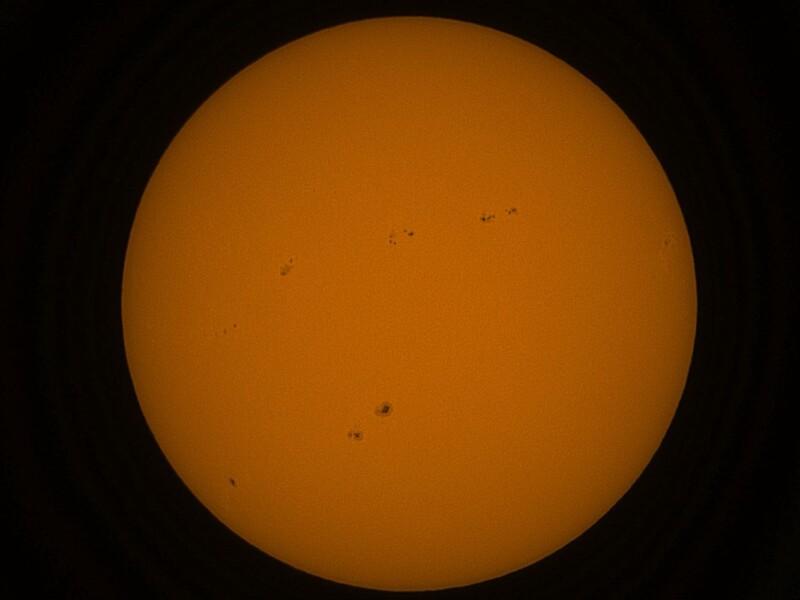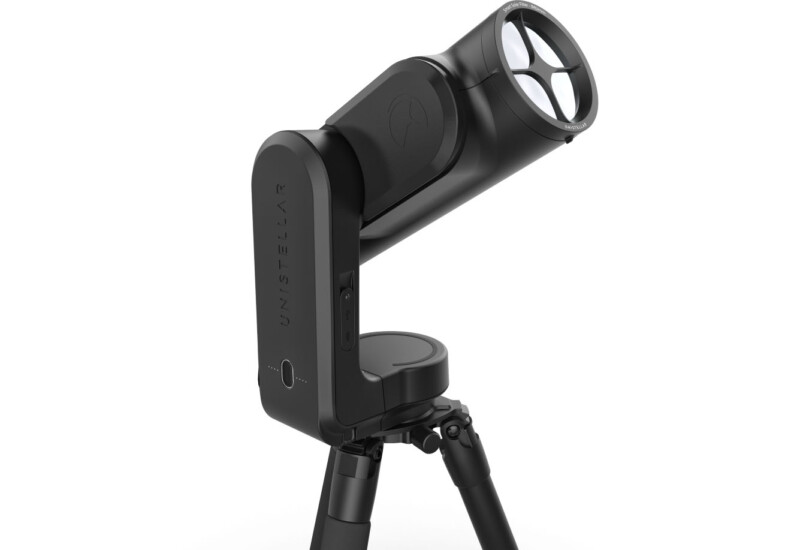Unistellar Brings Its Smart Solar Filter to the Odyssey Telescope Line
![]()
Unistellar is bringing its Smart Solar Filter to the Odyssey line of telescopes with plenty of time to spare ahead of the highly anticipated solar eclipse hits North America this spring.
Unistellar — which Nikon invested in last April — first debuted the Smart Solar Filter last May with support for the Equinox 2 and eVScope 2 telescopes, which cost $2,500 and $4,900, respectively. The company is now bringing that support to the Odyssey and Odyssey Pro announced in January that retail for $2,500 and $3,999, respectively. While the pricing for the Equinox 2 and the Odyssey are the same, they are categorized differently: the former is filed in Unistellar’s “Expert” range of offerings while the Odyssey is in the “Discovery” range.
As a recap, the Odyssey telescopes promise to make stargazing accessible and easy and put “the Universe at your fingertips.” They are capable of pointing toward and tracking any of the 5,000-plus celestial objects in its database and is controlled from the Unistellar app.

The company is positioning the Odyssey as ideal for viewing the upcoming solar eclipse if it is paired with the new Smart Solar Filter.
“Boasting the highest actual resolution of any smart telescope on the market, Odyssey will provide the ultimate viewing experience for eclipse-watchers and a safe manner when paired with a Unistellar Smart Solar Filter. The telescope’s Go-to-Sun tracking technology and Stellar Autofocus also ensure viewers don’t miss a second of this rare celestial event and can view it in unparalleled clarity,” the company claims.

The upcoming North American solar eclipse will take place on April 8, the last time one will pass over the contiguous United States for 20 years. It will pass over nine states: Arkansas, Indiana, Maine, Missouri, New York, Ohio, Oklahoma, Texas and Vermont. Referencing the full map of the path of totality created by The Planetary Society and The Eclipse Company is a great way to plan a trip to see it.
In addition to the eclipse, Unistellar says that the sun is reaching its 11-year cycle activity peak with more sunspots evolving, creating plenty of observable phenomena for technology enthusiasts and amateur astronomers long after the solar eclipse has passed.
Of note, the telescopes in each of Unistellar’s two lines use a differently sized front optic — the Smart Solar Filter for the “Expert” telescopes is larger. That’s probably why Unistellar isn’t charging as much for the new filters for the Odyssey line, as they will retail for $199 (compared to $250 for the Equinox 2 and eVScope 2) when they ship in March.